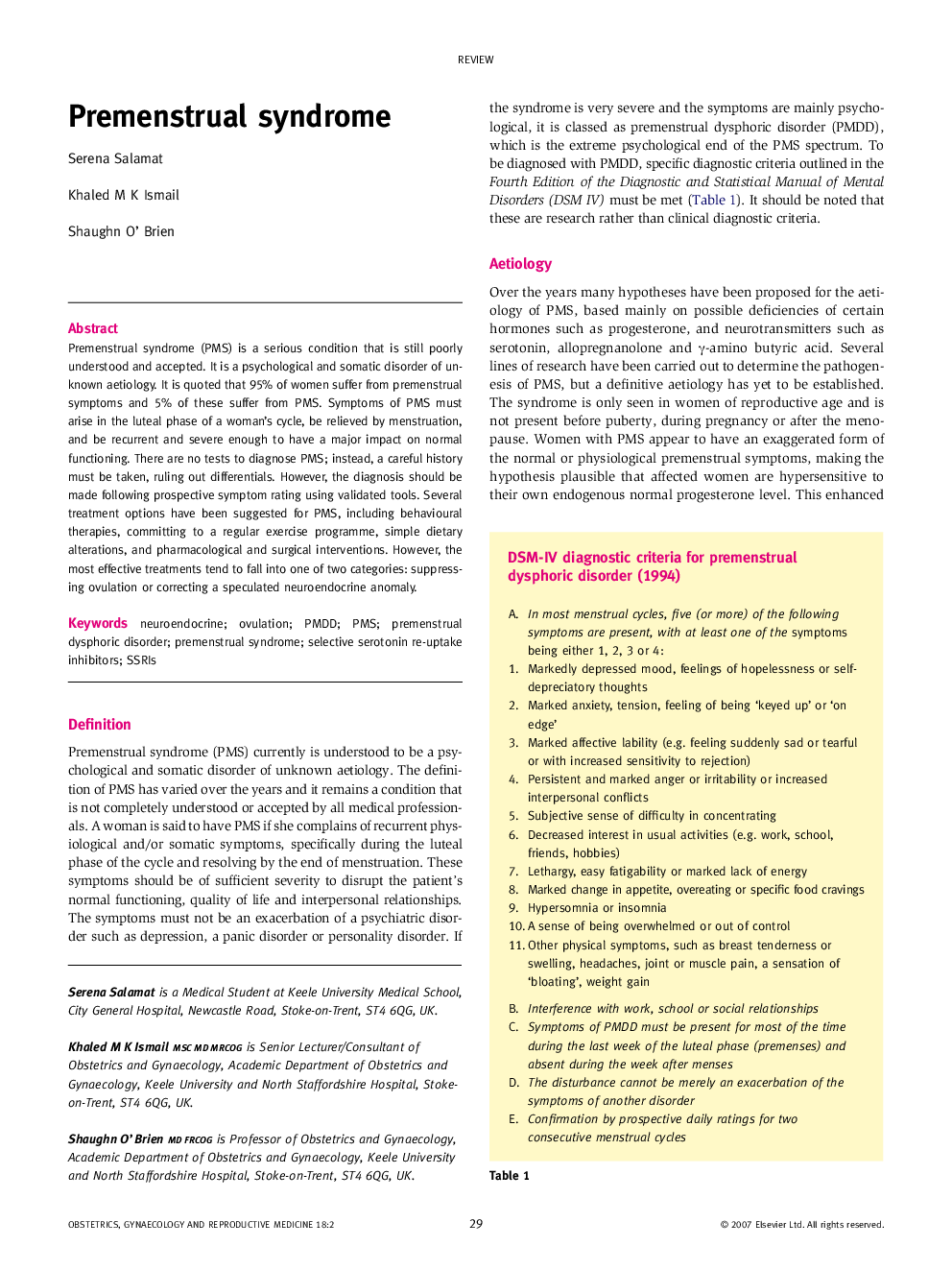| Article ID | Journal | Published Year | Pages | File Type |
|---|---|---|---|---|
| 3967517 | Obstetrics, Gynaecology & Reproductive Medicine | 2008 | 4 Pages |
Premenstrual syndrome (PMS) is a serious condition that is still poorly understood and accepted. It is a psychological and somatic disorder of unknown aetiology. It is quoted that 95% of women suffer from premenstrual symptoms and 5% of these suffer from PMS. Symptoms of PMS must arise in the luteal phase of a woman’s cycle, be relieved by menstruation, and be recurrent and severe enough to have a major impact on normal functioning. There are no tests to diagnose PMS; instead, a careful history must be taken, ruling out differentials. However, the diagnosis should be made following prospective symptom rating using validated tools. Several treatment options have been suggested for PMS, including behavioural therapies, committing to a regular exercise programme, simple dietary alterations, and pharmacological and surgical interventions. However, the most effective treatments tend to fall into one of two categories: suppressing ovulation or correcting a speculated neuroendocrine anomaly.
